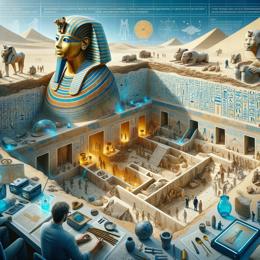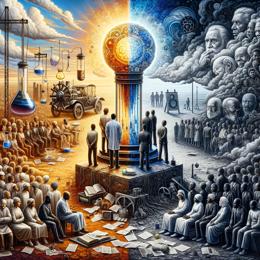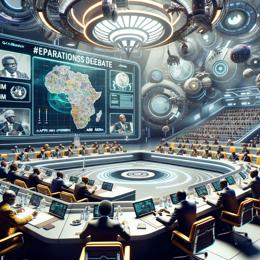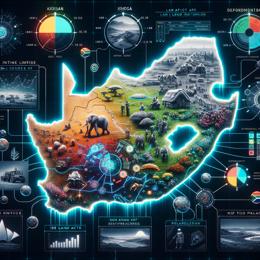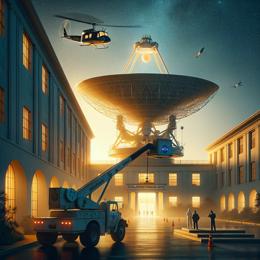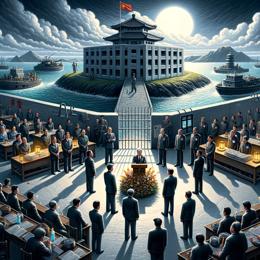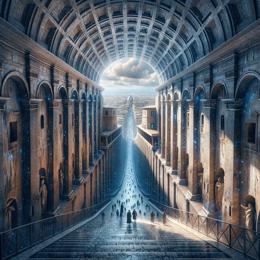Image created by AI
Lessons from History: Could Modern Civilization Mirror the Collapse of the Bronze Age?
History has a tendency to resonate across the ages, illuminating patterns that often go unnoticed until we find ourselves caught within a déjà vu of our ancestral narratives. Andreas Kluth’s contemplations on the echoes of the Bronze Age collapse within contemporary society unfurl a tapestry of causality and warning that entreats today's global civilization to vigilantly steer away from the brink of a similar catastrophic demise.
The allegory of history teaches us that the collapses of civilizations have long been an area of fascination and inquiry among scholars. From the ancient works of Polybius to Edward Gibbon's 18th-century musings and today's modern interdisciplinary research, we learn that the question of societal fall—and whether we might suffer the same fate—is perennial.
But why do societies collapse? Despite the multiplicity of theories, ranging from environmental degradation to loss of civic virtue, commonality is found in increasingly compounded complexity within a civilization and the inability to manage or recognize its burgeoning costs. In his seminal 1988 work, anthropologist Joseph Tainter presents the accumulation of complexities within a society, from administration to technology, as a precursor to fragility and potential downfall.
This narrative isn’t alien to modern ears. South Africa, like the rest of the world, is nestled within an intricate and often tenuous network of global supply chains, governments, technologies, and environmental ecosystems, all of which hold the potential for unprecedented cascading failures under duress.
The Bronze Age, an era characterized by an intricate web of interconnectedness reminiscent of our globalized world, presents insightful parallels. Eric Cline, a notable academic voice in studying this epoch, illustrated a comprehensive picture of a society that, much like our own, did not recognize the dangers of its interdependence until it was too late. The triggers for the Bronze Age's downfall—a lethal combination of drought, disease, invasions by the Sea Peoples, and earthquakes—each find contemporary counterparts in climate change, pandemics, mass migrations, and ongoing geopolitical conflicts.
Our modern predicaments feel eerily similar, do they not? We grapple with looming threats of climate crisis, technological disruption, political strife, and a pandemonium of other crises that threaten to fray the delicate fabric that is our societal structure. And like those before us, the big question remains: do we understand the intricate feedback loops and non-linear possibilities that these crises entail?
Yet, we are not devoid of hope or means. If the Bronze Age’s dark shadows compel evocative introspection, so too does it champion the spirit of rejuvenation, where the use of iron and the advance of the Phoenicians paved the way to new epochs of human achievement. Today, our advanced science and heightened self-awareness offer the tools to learn from the past and intentionally simplify our systems to foster resilience and sustainability.
Avoiding collapse in a modern context may not just entail addressing the signs of potential disaster, but actively re-engineering our social, economic, and political landscapes to prevent reaching a threshold beyond which recovery is not just costly, but uncertain.
Thus, Andreas Kluth’s reflections are more than just an academic exercise; they are a clarion call to recognize the delicate balance upon which our 21st-century lives precariously rest, and to collectively take deliberate steps to tame the complexity that could presage our downfall. Will the looming spectre of collapse prompt us to adapt, or will we find ourselves entrenched in a new dark age? The answer lies not in the stars, but in our concerted actions and the wisdom we distil from our collective history.

